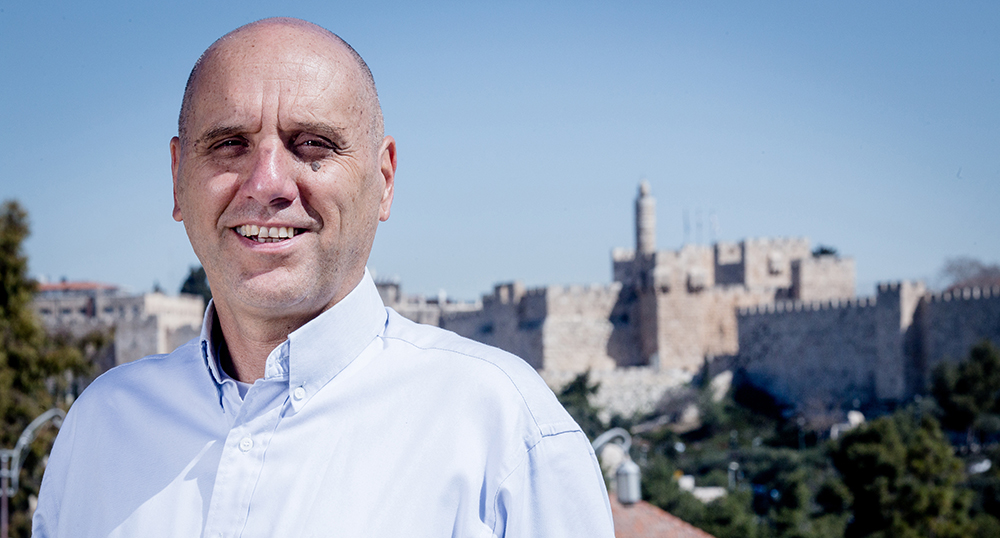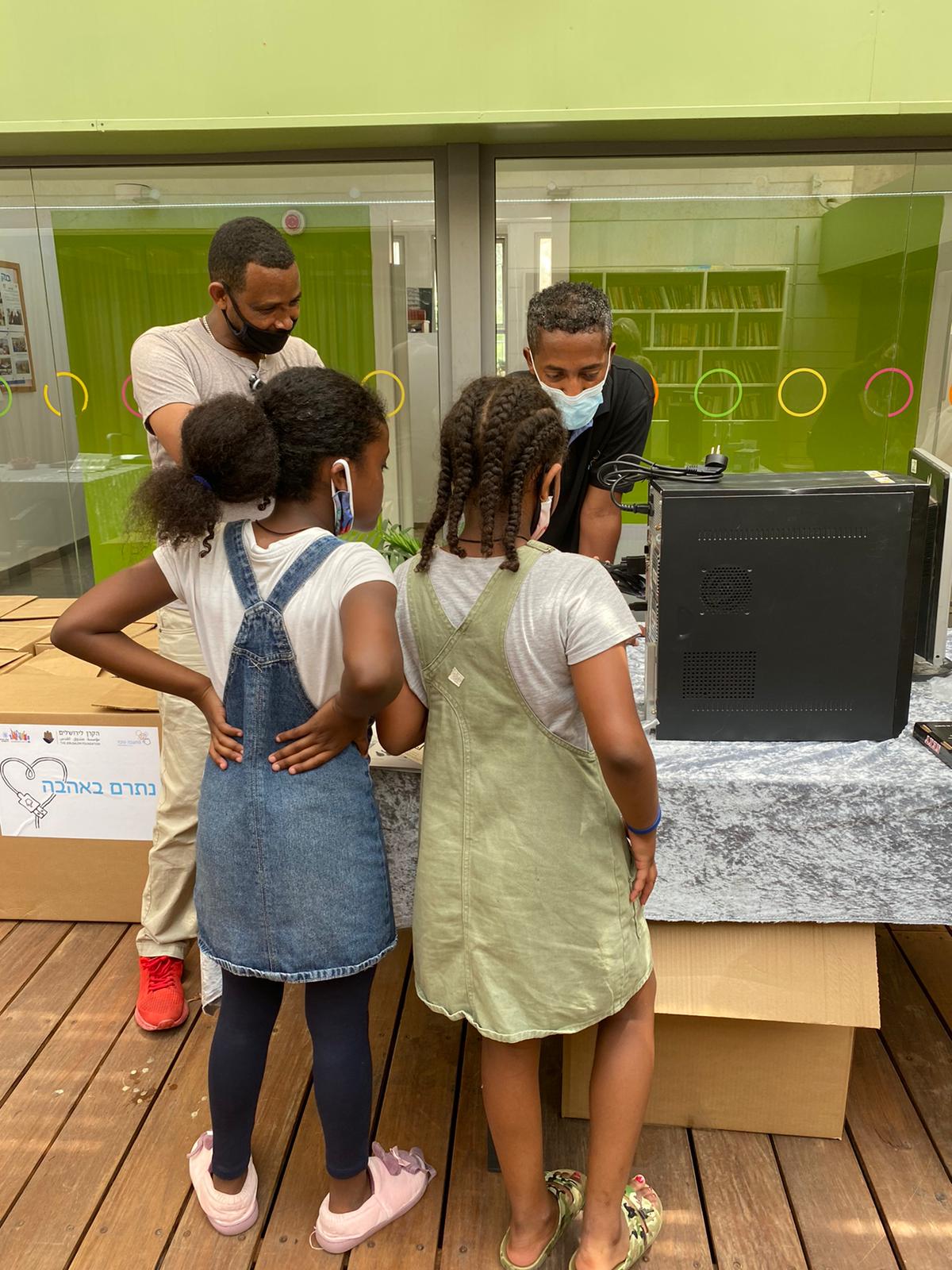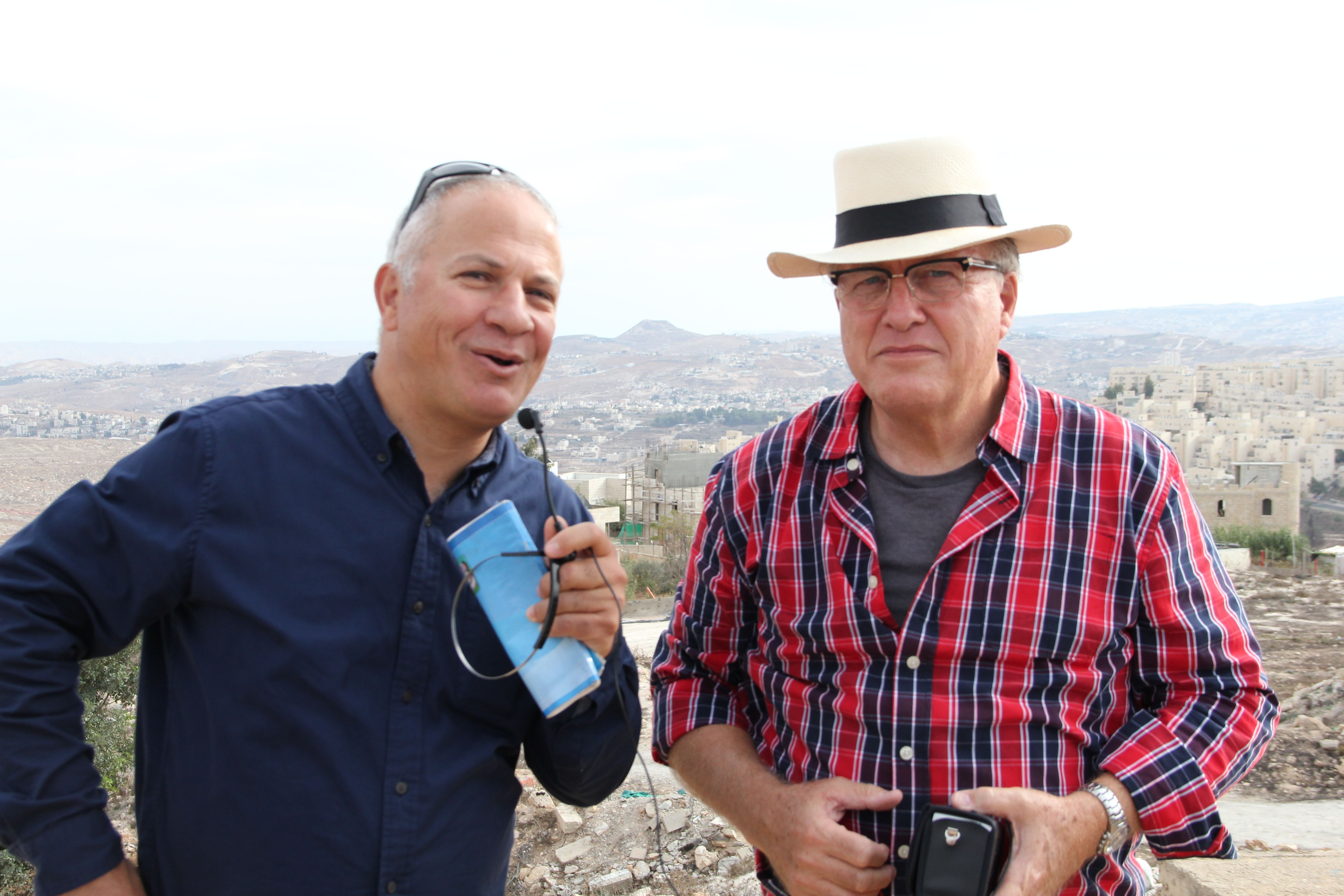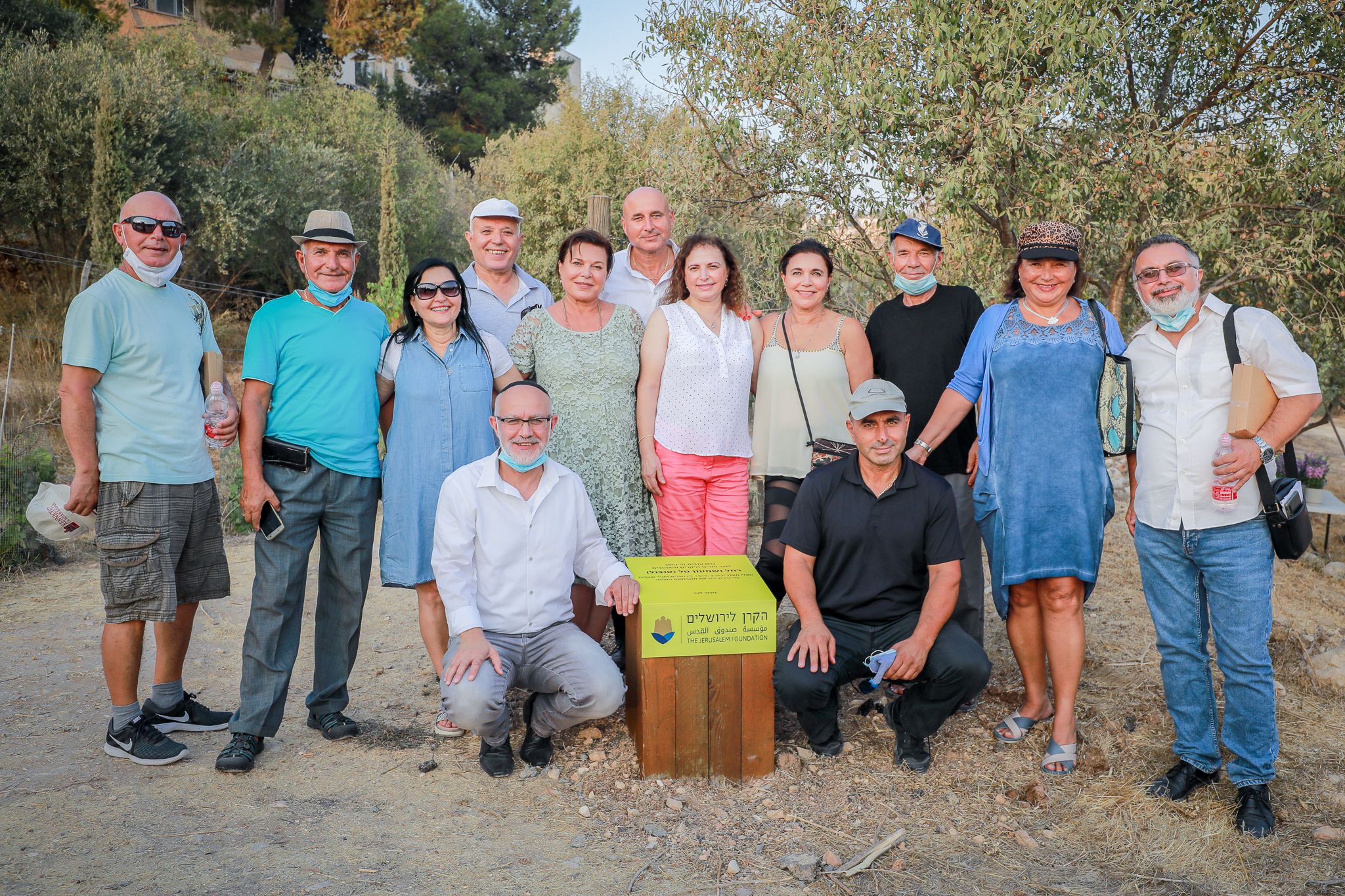
Dear Friends,
These are strange and difficult times around the world, and in Jerusalem we are facing a second lock down and rising infection rates… We are all in need of some good news over the horizon and we are looking to the New Year with hope and yearning for better days to come…
This edition of “my Jerusalem stories” comes to you with all good wishes for the New Year and for health, happiness and safety. The stories below give me hope for the future and I share them with you, together with my Shana Tova from Jerusalem and my good wishes to friends around the world.
Zoom in Amharic
It was another very hot day, these last days of August, the last day before going back to school. I arrived at the Kiryat Menachem Community Center to watch up-close the distribution of computers to the Ethiopian community living in the neighborhood, forty families arrived each one in turn received a home computer so they could begin the coming school year with our new normal of “distance learning”. For most of us Zoom has become a daily routine for work, study and social interaction. For many in Jerusalem it is not so simple… There are many families who do not even own a home or laptop computer.
Faulty network connection infrastructures in certain areas, families with multiple children that only have one computer have to make a schedule, so each child has a turn at their designated hour of online study and for this a special computer program is needed.
The Jerusalem Foundation in recent months has invested hundreds of thousands of dollars to purchase computers, tablets and laptops in all areas of the city for all ages. The story of Kiryat Menachem and “Machshava Tova” is special. Forty computers previously used by commercial companies were repurposed and fixed by the volunteers of “Machshava Tova” through the Community Innovation and Computing Workshop, which operates regularly in the community center.
Considerable financial savings, concern for recycling, utilization of resources and community engagement of the local youth on behalf of the community were all part of this process.
Each family that came to the community center received a box with a refurbished computer, network card, learning software and interface with the schools through Zoom and in addition a mobile modem that allows network browsing even if there is no fixed network infrastructure in the home.
Inside the box there was another surprise, a user manual, basic and simple, how to use the computer, written in Amharic – this especially for the benefit of the excited parents who came with their children to get the computer, allowing them to familiarize themselves and assist their children where possible. The Amharic-speaking guide explains to each family and guides the children and their parents through how to use the new computer…. And Zoom is the same in Hebrew, Arabic, English and Amharic.

Beyond the Mountains of Darkness
I have known Eliezer (“Gezer”) Yaari for many, many years. Good friends. We share lots of experiences and mutual affections, and one great love – Jerusalem.
Eliezer underwent surgery years ago, and as part of his recovery he needed to walk… in order to return to good health. He walked from his home in the Arnona neighborhood – he chose a direction eastward – toward territory he had yet to explore – toward his neighbors “beyond the mountains of darkness” to the Arab neighborhood of Tsur Baher. The new world that he found, Eliezer described in his book, “Beyond the Mountains of Darkness” that has been purchased and read by thousands. The story tells of his journey to a neighborhood close-by but one that was truly worlds away from his home.
In Tsur Baher, Eliezer came in contact with an array of people he had never known. One in particular, was Dr. Tariq Abu Hammed, a proud Palestinian, Jerusalemite, who rose to the position in the Israeli Ministry of Science as Deputy Chief Scientist. Today he is the Academic Director of the Arava Institute for Environmental Studies. Eliezer and Tariq’s friendship is the story behind the documentary movie, “The Optimists”. But more importantly, it became a courageous relationship that led to one of the most fascinating projects in which the Jerusalem Foundation was recently involved.
In addition to all his professional work, Dr. Abu Hammed was the head of the parents’ committee at the municipal girls’ high school in Tsur Baher. Despite all disagreements and political arguments, Tariq held fast to his belief that the future belongs to education and that change will be made by the younger generation and the girls being raised in the neighborhood. The girls’ high school in Tsur Baher quickly became a success story – it drove towards change – ground-breaking education, students motivated to create change, a desire for achievement and for paving the way towards advanced academic studies while providing a real opportunity for future development.
What the well-kept school was missing was a science laboratory. Physics, chemistry, biology – all on a high level – these were the fields close to Dr. Abu Hammed’s heart. For this purpose, new friends were made and recruited to fulfill the dream: Eliezer Yaari himself engaged good friends from Israel, Austria and the USA who mobilized with us to raise resources and contribute to building the laboratory. Dr. Abu Hammed also took care to encourage the parents of the students, to give and contribute their humble part and join the mission. Although their contribution appears only natural, their inclusion was extraordinary and was driven by Dr. Abu Hammed. These days, as the school year is opening, even though the pandemic keeps daily routine at bay, the Jerusalem Foundation has completed the construction and outfitting of the laboratory. The sky is now the limit for the high school girls of Tsur Baher.
Tariq and Eliezer’s smile is hard to miss – even though we all find ourselves in difficult times. It is true that it is just one laboratory, but the story behind it inspires great hope for Jerusalem. By the way, a few months ago, Eliezer’s newest book “Every So Often” was published. It is a collection of some 20 years of his Friday afternoon spots on Israel Radio. His broadcasts, humorous at times, also raised question marks amid criticism of Israeli society. But “every so often”, there is also a ray of hope coming from Jerusalem and Tsur Baher…

The Sweetness of the Grapes
The Tal (Toboul) family is a well-known Jerusalem family. Rachel and Shimon Tal immigrated to Jerusalem from Algiers, where they built a home and raised 13 children with love and great determination. The efforts of the parents shaped a united and close family with a shared value system. Shimon worked as a contractor, known throughout Jerusalem as a modest man who “did not suffer fools”. But behind the tough exterior was a gentle, loving and caring soul. Rachel, despite her education and studies, devoted her life to the family and ran their home like a military operation every day, caring for each of her children and later grandchildren and great-grandchildren. The couple was an incredible example to others and left behind a close-knit family.
The story of the Jerusalem Foundation consists of a mosaic of donors and supporters from all over the world, but sometimes the support we receive is particularly meaningful such as that from the Tal family. True Jerusalemites. This exceptional family chose the Jerusalem Foundation to commemorate his parents by supporting the Gazelle Valley Park.
The Gazelle Valley is an urban wildlife reserve in the middle of the city, an expression of community power and local leadership, which the Foundation established together with the Municipality and continues to invest resources in its development. Now also includes the Tal family’s gift of a new jewel for the park, a vineyard named in memory of Rachel and Shimon Tal.
A humble and moving contribution, which symbolizes the commitment of the Tal family, like that of the Jerusalem Foundation, to the city. This is a wonderful combination saluting family, and the development of Jerusalem and empowering the diverse communities that live in the city.

I did not know Rachel and Shimon personally. The initiative to create the vineyard began before I began my role at the Foundation, a process that took almost 2 years, but I did attend the dedication ceremony at the Gazelle Valley. I recognized a Jerusalem family (even if some of the younger generation has left the city). I felt a renewed excitement from the great commitment of these Jerusalemites to their city and from the way the family sought to commemorate their loved ones.
The dedication took place last week, just prior to the New Year. It was a profound way to end the year, full of hope for the future – the vineyard will bear fruit, in spite of this trying year. The time I spent last week in the late afternoon at the Gazelle Valley, reminded me that everything could, and will be much better.
Shai Doron
Jerusalem Foundation President


 - עיצוב אתרים
- עיצוב אתרים